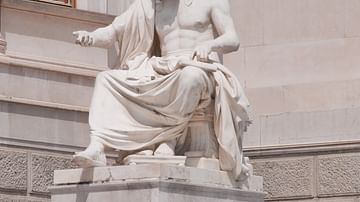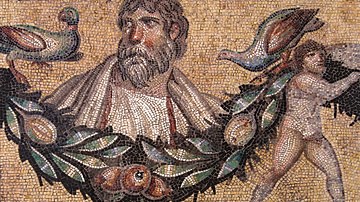Review

| Rating: | |
|---|---|
| Title: | Greek Historiography (Blackwell Introductions to the Classical World) |
| Author: | Thomas F. Scanlon |
| Audience: | University |
| Difficulty: | Hard |
| Publisher: | Wiley-Blackwell |
| Published: | 2015 |
| Pages: | 352 |
Scanlon writes with such deliberate eloquence that the reader feels he or she is viewing a master mason methodically construct a temple to Greek History using loose stones that are in themselves magnificent.
Thomas Scanlon presents the reader with a narrative of Classical Greece that offers both eloquence, structure, and may serve as essential reading for students, a comprehensive review for academics, and a timely reminder for strategists that history may not always repeat, but it certainly rhymes.
Prior to tackling Scanlon's Greek Historiography one must understand the purpose of a historiography, which the Webster Dictionary defines as, "the writing of history; especially: the writing of history based on the critical examination of sources, the selection of particulars from the authentic materials, and the synthesis of particulars into a narrative that will stand the test of critical methods."
Bearing Webster in mind, Scanlon fuels his historiography using surviving works, beginning with those prior to Herodotus, through the great historians of Classical Greece, and concluding with those of the Roman Imperial Era. In chronological order, historians such as Herodotus, Thucydides, Xenophon, and Polybius (just to name a few) are introduced to the reader, their works summarized, then placed into a historical context. He does this with such deliberate eloquence that the reader feels he or she is viewing a master mason methodically construct a temple to Greek History using loose stones that are in themselves magnificent.
With Herodotus, Scanlon reminds the reader that the "Father of History" is breaking new ground and should be allowed some license for being a master storyteller. He introduces Thucydides as a historian that will leave nothing to fable if it can be helped. And with Xenophon – a student of Socrates – he illustrates how the human condition is so critical to capturing history. He continues using this framework until his final chapters where he rewards the stalwart leader with well-developed and engaging conclusions.
This opinion appears to be widespread. From the back cover,
From Thucydides to Polybius, the volume considers pervading questions of causation, divine justice, leadership, civilization versus barbarism, legacy, and literary reception. Alongside sophisticated close reading, Scanlon provides thorough summaries that signpost key passages and highlight thematic links to help readers navigate their way through the original texts.
In closing, Scanlon's Greek Historiography accompanied me on a recent trip to Greece, where I had the notion of visiting the great battlefields and city-states so beautifully described by Herodotus, Thucydides, and Xenophon. This book served as a magnificent review of what I was to see on my trip, as well as putting my experiences into a grand construct afterwards. Scanlon's writing and organization struck me as being not only perfect but essential for students studying Greek History. On that note, I would highly recommend the inclusion of this comprehensive volume for those undergraduate and graduate students pursuing degrees of this nature.
About the Reviewer
Cite This Work
APA Style
Olsen, C. (. P. B. (2016, June 20). Greek Historiography. World History Encyclopedia. Retrieved from https://www.worldhistory.org/review/140/greek-historiography/
Chicago Style
Olsen, Colonel (Retired) Paul B.. "Greek Historiography." World History Encyclopedia. Last modified June 20, 2016. https://www.worldhistory.org/review/140/greek-historiography/.
MLA Style
Olsen, Colonel (Retired) Paul B.. "Greek Historiography." World History Encyclopedia. World History Encyclopedia, 20 Jun 2016, https://www.worldhistory.org/review/140/greek-historiography/. Web. 26 Apr 2025.




